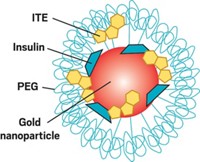Advertisement
Grab your lab coat. Let's get started
Welcome!
Welcome!
Create an account below to get 6 C&EN articles per month, receive newsletters and more - all free.
It seems this is your first time logging in online. Please enter the following information to continue.
As an ACS member you automatically get access to this site. All we need is few more details to create your reading experience.
Not you? Sign in with a different account.
Not you? Sign in with a different account.
ERROR 1
ERROR 1
ERROR 2
ERROR 2
ERROR 2
ERROR 2
ERROR 2
Password and Confirm password must match.
If you have an ACS member number, please enter it here so we can link this account to your membership. (optional)
ERROR 2
ACS values your privacy. By submitting your information, you are gaining access to C&EN and subscribing to our weekly newsletter. We use the information you provide to make your reading experience better, and we will never sell your data to third party members.
Biological Chemistry
Successful Chemotherapy Relies On Immune System Cleanup
Oncology: Removing dead cancer cells requires a functioning peptide receptor on immune cells
by Sarah Everts
November 2, 2015
| A version of this story appeared in
Volume 93, Issue 43
A patient’s own immune system may be a weak link in the success of some chemotherapies, reports a team led by Laurence Zitvogel and Guido Kroemer of the Gustave Roussy Cancer Campus. These researchers took a closer look at how the immune system clears dead cancer cells after treatment with anthracyclines, a family of chemotherapy drugs (example shown) widely used to treat breast, lung, blood, and bladder cancers. The team found that, for anthracycline treatment to work optimally, a patient’s dendritic immune cells need to have a functional formyl peptide receptor called FPR1. This receptor helps the cells form stable contacts with cancer cells killed using chemotherapy. Once the dendritic cells connect with the malignant cell corpses, other immune cells can be recruited to clear the tumor (Science 2015, DOI: 10.1126/science.aad0779). The team notes that a dysfunctional or absent FPR1 protein is common in many cancer patients. They argue that researchers need to find ways to restore or bypass defective FPR1 signaling so that anthracycline chemotherapy can be successful.





Join the conversation
Contact the reporter
Submit a Letter to the Editor for publication
Engage with us on Twitter